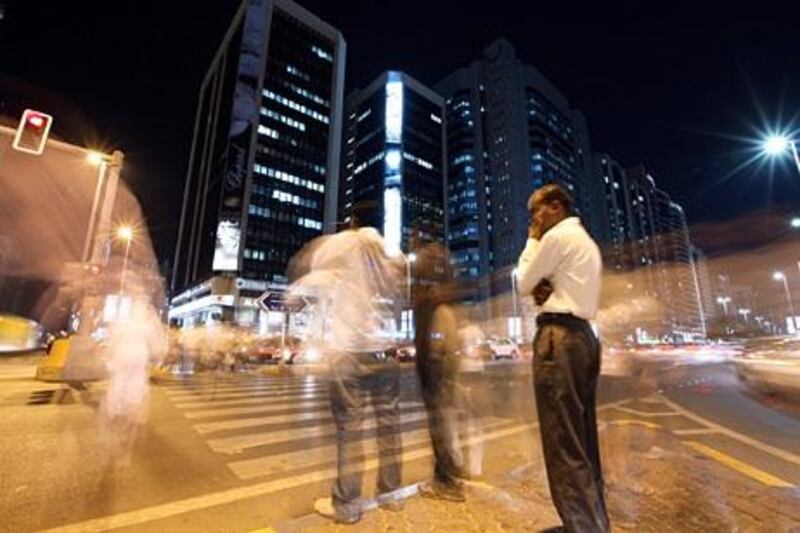Over the past century, rising living standards have gone hand-in-hand with growing use of energy. All the signs are that this will hold true for the next 100 years, but the scale of the challenge for the industry to keep up with demand is growing.
As hydrocarbon deposits are depleted, energy costs rise and pollution limits get stricter, the business of keeping the lights on becomes more complex. At the same time, demand keeps growing. Today, there are still 1.3 billion people worldwide without access to electricity, and the population is forecast to rise by at least another 1 billion by 2030.
But why should we worry, when Abu Dhabi's oil reserves are so plentiful and electricity so cheap?
Abu Dhabi might be home to 8 per cent of the planet's proved oil reserves, but it is not as immune to the world's energy challenges as many might imagine. In fact, we are faced with a number of threats to our energy system that will demand great innovation.
Even the UAE, with a population of 8 million, faces a challenge just meeting demand. Consumption is expected to double before this decade is out. Not only do we need to generate more power, but we need to make our energy system more sustainable.
Today, we are almost totally reliant on a single fuel source for all our power and water desalination - natural gas. This is less carbon-intensive than coal, so this puts us at an advantage compared to some countries. But we use so much electricity for air conditioning and water that we have earned the dubious honour of having one of the biggest carbon footprints in the world on a per capita basis. We need to find alternative energy solutions to address this.
The civilian nuclear power programme, which began construction last year, will make a huge contribution to diversifying our energy sources, and at the same time reduce our carbon footprint. Masdar, a unit of Mubadala Development, will soon inaugurate the first large-scale solar project in the emirate, while Taqa, Abu Dhabi National Energy Company, is developing a plant to turn waste into energy.
Abu Dhabi's oil reserves may be large enough to keep pumping at current levels for a century, but we will increasingly need advanced seismic analysis to better understand our resource, and big investments to squeeze the maximum value from these geological assets. We will need much larger numbers of skilled Emirati engineers and geologists to meet these challenges.
In North America, hydraulic fracturing and other techniques such as live 3-D geological imaging and horizontal drilling have generated a debate about the energy choices faced by the world. It has also transformed the global energy landscape.
Oil production in the United States has rebounded to its highest level in 14 years and the country that was once the world's largest importer of energy is expected to become self-sufficient by 2030.
Abu Dhabi is playing an active part in this global energy shift through a number of government-related companies such as Taqa, Ipic (International Petroleum Investment Company) and Mubadala (a strategic investment company owned by the Abu Dhabi Government). They have interests in North America, Europe, Asia and here in the Arabian Gulf.
Through its government-related companies, Abu Dhabi can help its partners around the world to drive economic growth and deliver improved living standards, while also enhancing the skills and knowledge of our national workforce and returning dividends to the national purse.
In Turkey, to take one example, Abu Dhabi will develop a series of indigenous fuel deposits, enhancing Turkey's energy security and reducing its dependence on imported gas. This alliance will endure for more than a decade and involve more than US$10 billion (Dh36.73bn) in investments. All this enterprise abroad also creates opportunities at home.
Managing these global operations creates the need for managers and technical professionals in Abu Dhabi, from geologists to finance specialists. Emirati nationals have an opportunity to gain the skills and knowledge required to compete in the global energy challenges of the future.
Saif Al Sayari is the executive officer for energy solutions at Taqa. He holds a PhD in petroleum engineering from Imperial College in London





